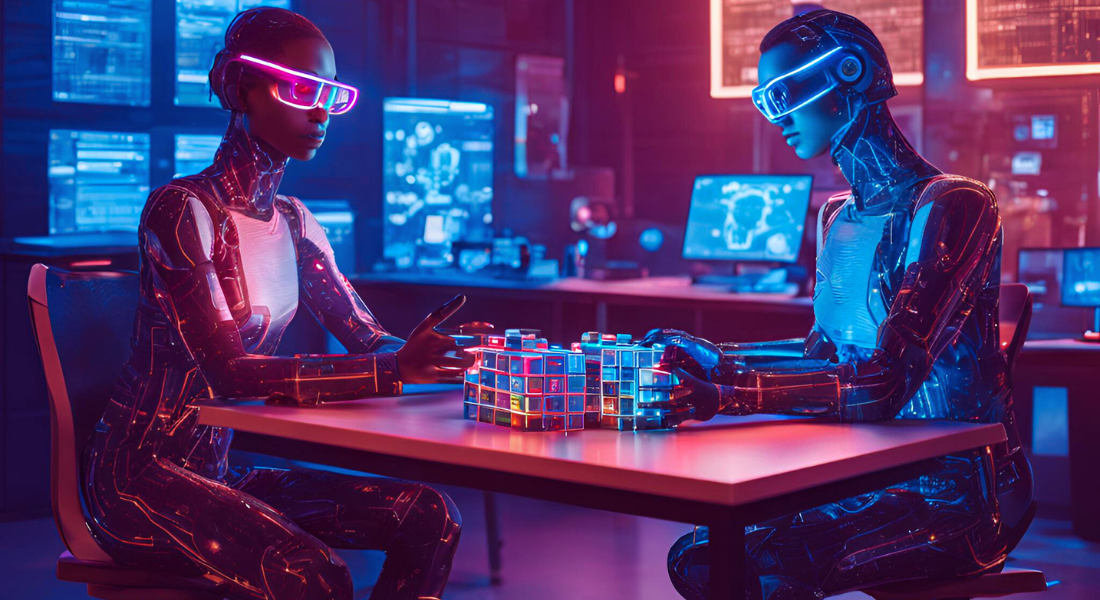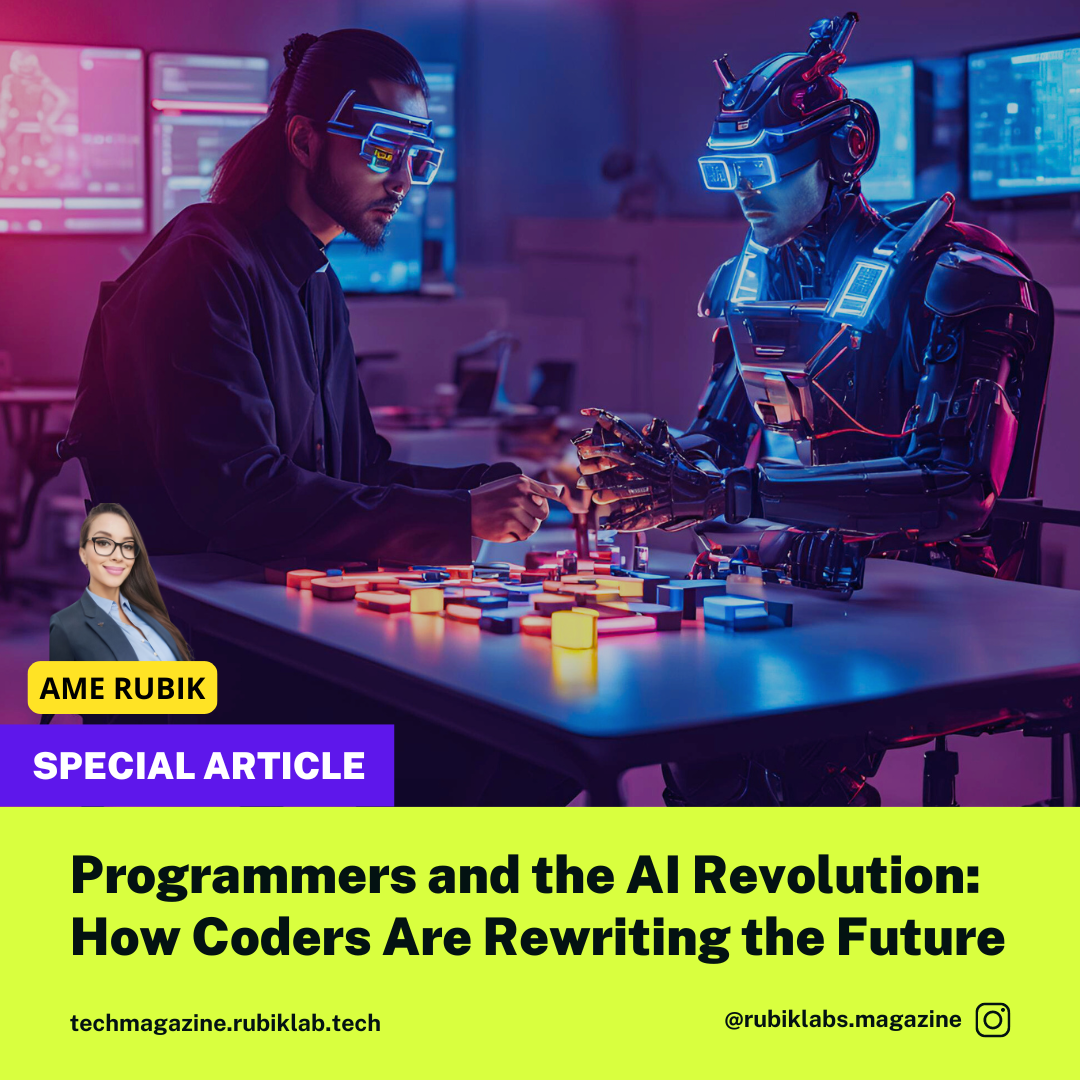
1. The AI Revolution: Projects That Define the Future
Artificial intelligence (AI) is rapidly transforming various sectors, driven by the ingenuity and creativity of programmers developing innovative technologies. This section explores how AI advancements are redefining key areas such as healthcare, transportation, and education, and provides a detailed look at some of the most impactful projects and applications.
Advanced Language Models: The New Frontier of Communication
Advanced language models like GPT-4 are making significant strides in how we interact with technology. Developed by AI research teams, these models utilize deep neural networks to understand and generate text in a coherent and contextually relevant manner. Key applications include:
- Intelligent Chatbots: Powered by GPT-4, chatbots are now capable of handling not only basic queries but also complex conversations, providing customer support, and offering real-time personalized recommendations.
- Content Generation: Writers and content creators are leveraging these models to produce articles, reports, and even creative works, accelerating production processes and exploring new storytelling methods.
- Automatic Translation: Automatic translation has become more accurate and fluid, facilitating global communication and breaking down language barriers on international platforms.

AI in Medicine: Revolutionizing Diagnosis and Treatment
In the healthcare sector, AI is playing a pivotal role in enhancing diagnostics and personalizing treatments. Advanced algorithms are enabling significant progress in areas such as:
- Early Diagnosis: AI algorithms analyze vast volumes of medical data, including MRI scans and tomography, to identify patterns that may indicate diseases like cancer at early stages. These systems assist radiologists in detecting issues with greater precision and speed.
- Personalized Treatments: AI is revolutionizing personalized medicine by analyzing genetic data and medical histories to recommend specific treatments for each patient. This not only enhances treatment efficacy but also reduces side effects and associated costs.
- Drug Discovery: AI models are expediting drug discovery by predicting how different chemical compounds interact with biological targets, thus accelerating research and the development of new therapies.

Autonomous Vehicles: Redefining Future Mobility
Autonomous driving is one of the most exciting areas in AI, with recent advancements bringing this technology closer to everyday reality. Autonomous driving systems use a combination of sensors, cameras, and machine learning algorithms to navigate and make real-time decisions. Key developments include:
- Sensors and Perception: Autonomous vehicles are equipped with a variety of sensors, such as LiDAR and cameras, allowing the system to understand its environment, detect obstacles, and make decisions based on real-time data interpretation.
- Navigation Algorithms: AI algorithms process data from multiple sources to plan routes, optimize vehicle performance, and ensure safety. These algorithms must be extremely precise and adaptable to handle various traffic conditions and unexpected situations.
- Infrastructure Integration: Integrating autonomous vehicles with transportation infrastructure, such as smart traffic lights and traffic management systems, is optimizing urban mobility and reducing congestion.

2. The Convergence of AI and Ethics: Challenges and Solutions
As artificial intelligence advances at a rapid pace, significant ethical and social issues arise that programmers must address to ensure a positive and equitable impact on society. We explore the primary challenges and the solutions being implemented:
Combating Bias in Algorithms
One of the most critical issues in AI development is inherent bias in algorithms. Bias can stem from various sources, such as non-representative training data or unconscious developer prejudices. To address these challenges, programmers are adopting various strategies:
- Data Auditing: Implementing rigorous review and auditing processes for the data used to train AI models, ensuring that it is representative and diverse.
- Algorithmic Transparency: Developing tools and methodologies to make algorithms more transparent and understandable, allowing users and auditors to identify and correct biases.
- Education and Awareness: Promoting diversity and inclusion training within development teams to minimize unconscious biases during AI creation.
Data Privacy: Protecting Personal Information
Data privacy is a growing concern in the digital age. Programmers are implementing several measures to protect personal information and ensure data security:
- Data Encryption: Employing advanced encryption techniques to secure data both in transit and at rest, ensuring that only authorized parties can access the information.
- Anonymization and Pseudonymization: Applying methods to anonymize or pseudonymize data, reducing the risk of identifying individuals and safeguarding their privacy.
- Regulatory Compliance: Ensuring that systems and processes comply with privacy regulations such as GDPR in Europe or CCPA in California, implementing practices for consent management and user rights.

3. The Programmer’s Role in Developing AI Tools
Programmers not only create AI applications but also develop the tools and frameworks that enable the construction of advanced AI models. Here, we highlight some of the most influential tools in the field:
Popular Frameworks: Driving AI Advancement
- TensorFlow: Developed by Google, TensorFlow is an open-source library for machine learning and deep learning. It allows programmers to build and train complex AI models efficiently, supporting deep neural networks, machine learning, and reinforcement learning. Its flexible and extensible architecture makes it a key tool for researchers and developers.
- PyTorch: Created by Facebook, PyTorch has gained significant popularity due to its ease of use and flexibility. Its focus on dynamic programming facilitates experimentation and research in deep learning. Programmers appreciate its real-time computation capabilities, making it ideal for rapid prototyping and developing complex models.
Open-Source Tools: Collaboration and Accelerated Progress
- Open-Source Projects: Collaboration on open-source projects, such as scikit-learn and Keras, has been crucial for AI advancement. These projects enable programmers to share knowledge, improve existing tools, and build upon the work of others. The collaborative nature of these projects fosters innovation and accelerates progress in the field.
- Communities and Resources: Online communities and forums dedicated to AI and machine learning provide support and resources to developers. These platforms facilitate collaboration, problem-solving, and the dissemination of best practices, aiding in the learning and implementation of new AI techniques.

4. From Science Fiction to Reality: Projects That Seem Straight Out of Movies
Technology has advanced to the point where many ideas once considered science fiction are now becoming a reality. Here, we explore two fascinating areas:
Augmented and Virtual Reality: Transforming Experiences and Environments
- Education and Training: Augmented Reality (AR) and Virtual Reality (VR) are revolutionizing education and training by offering immersive experiences. These technologies allow students to interact with educational content in virtual environments, conduct practical simulations, and visualize complex concepts interactively.
- Entertainment and Media: In the entertainment sector, AR and VR are creating unprecedented immersive experiences, from video games to live sports events. These technologies are redefining how we experience cinema, theater, and other media, providing new forms of interaction and storytelling.
Brain-Computer Interfaces: Connecting Minds and Machines
- Assisted Communication: Brain-Computer Interfaces (BCIs) are enabling new forms of communication for individuals with severe disabilities. These interfaces read brain signals and translate them into commands to control devices, facilitating communication and interaction with the environment.
- Future Applications: As BCI technology advances, exciting possibilities emerge for cognitive enhancement and direct integration with AI systems. These interfaces could enable mental control of devices, enhance cognitive abilities, and provide new ways to interact with technology.

5. Education in the Age of AI: New Skills for New Challenges
With the rapid evolution of AI, education in programming and emerging technologies is adapting to prepare future developers. Key aspects include:
Courses and Certifications: Preparing for the Future
- Learning Platforms: Platforms such as Coursera, edX, and Udacity offer a wide range of courses and certifications in AI and machine learning. These courses, designed by leading universities and companies, cover everything from fundamental principles to advanced techniques, equipping students with the skills needed to enter the AI field.
- Specialized Programs: In addition to online courses, specialized programs and bootcamps provide intensive, hands-on training in specific areas of AI, such as deep learning, computer vision, and natural language processing (NLP).
Learning Challenges: Adaptation and Evolution
- Adaptive Curricula: Educational programs are evolving to include emerging topics such as AI ethics, algorithm development, and data management. Adaptive curricula ensure that students are prepared to tackle future challenges and stay abreast of the latest technological trends.
- Continuous Learning: Given the rapid pace of technological advancement, continuous learning is becoming crucial. AI developers and professionals must commit to ongoing education and skill updates to remain competitive in a constantly changing environment.

Conclusion: The Future in the Hands of Programmers
As we move towards an increasingly technology-driven future, the role of programmers is more crucial than ever. They are not only shaping the present with their innovations in AI and other emerging technologies but are also setting the stage for the future of the digital society. Their work not only drives technology forward but also establishes the foundation for a technological future that is ethical, inclusive, and exciting. The responsibility and creativity of programmers are essential to ensure that technological progress benefits everyone and contributes to a fairer and more accessible world.



